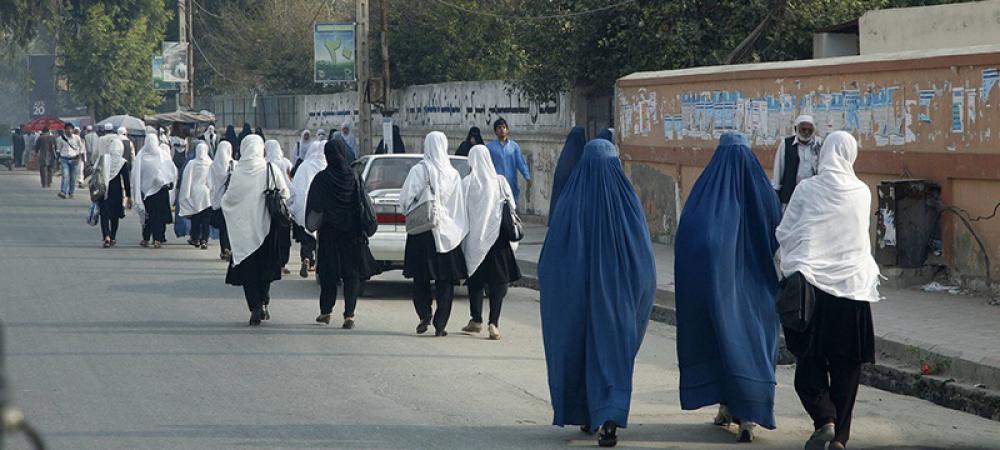Just Earth News | @justearthnews | 21 Jan 2023

Image: UN Photo/Fardin Waezi
New York: The ongoing collapse of the rule of law and judicial independence in Afghanistan is “a human rights catastrophe”, UN-appointed independent human rights experts warned on Friday.
“Lawyers, judges, prosecutors and other actors involved with the legal system in Afghanistan face grave risks to their safety, and those still practicing must navigate a deeply challenging, non-independent legal system”, Special Rapporteurs Margaret Satterthwaite, on the independence of judges and lawyers, and Richard Bennett, on the situation of human rights in Afghanistan, said in a joint statement.
‘Brazen discrimination’
Lawyers in Afghanistan – especially women – are risking their lives in efforts to protect the rule of law, they said ahead of the International Day of the Endangered Lawyer, marked on 24 January.
“We are gravely concerned by the extreme exclusion of women from the legal system”, the UN experts underscored, calling on the international community for “urgent support”.
They said that in “an act of brazen discrimination”, the Taliban have attempted to effectively ban all women from participating in the legal system.
More than 250 women judges, and hundreds of female lawyers and prosecutors, have already been removed.
Alleged perpetrators are often detained, sentenced and punished on the same day by the police – UN expert
“Many women judges have fled the country or gone into hiding”, the Special Rapporteurs added.
At ‘grave risk’
Prosecutors have been “systematically side-lined”, the statement continued, noting that their previous work in investigating, and prosecuting Taliban members under democratically-elected Governments, have put them at “grave risk”.
“More than a dozen prosecutors, the majority men, reportedly have been killed by unknown individuals in Kabul and other provinces. Many remain in hiding”.
By suspending the 2004 Constitution, ousting all judges from the bench, and stripping the Attorney General’s office of its key role, the Taliban has “precipitated the collapse of the rule of law and judicial independence in Afghanistan”, the UN experts explained.
“Instead of an independent legal system, the country has an all-male regime implementing the Taliban’s version of Sharia law”.
De facto judicial positions have been filled primarily by Taliban members with a basic religious education and advised by Muslim legal experts empowered to rule on religious matters, called muftis.
Moreover, laws and rules concerning legal procedure have been suspended and women may appear only when they are a party to a dispute.
“Alleged perpetrators are often detained, sentenced and punished on the same day by the police and other security agencies, denying any semblance of due process or judicial review”, the Rapporteurs continued.
Call to action
They called for greater international support to lawyers, legal aid providers, and non-governmental organizations working to advance justice and human rights – and for special attention to be paid to the situation of women lawyers and those working to promote gender rights.
“International actors should provide protection and safe passage to lawyers, judges, prosecutors, and other actors involved with the legal system, especially women, who are at risk of reprisal and attacks by the Taliban and others”, the statement detailed.
Despite “unimaginable obstacles” since the de facto authorities took control, legal professionals have persisted in their efforts to meet the legal needs of Afghans.
“They deserve far more in the way of support”, argued the experts.
They called on the Taliban to “immediately reverse” their abusive practices excluding women from the legal system, protect the lives of everyone working for the administration of justice, and ensure the right to fair trial for all Afghans.
Special Rapporteurs are appointed by the Geneva-based UN Human Rights Council to examine and report back on a specific human rights theme or a country situation. The positions are honorary and the experts are not paid for their work.